Japanese Professor Hiroki Tahara: Return to Vietnam for the Language
| Ambassador Ito Naoki: Vietnam’s "New Era" Presents Great Opportunity to Strengthen Japan-Vietnam Relations | |
| Strengthening Vietnam - Japan Ties Through Cultural Exchange |
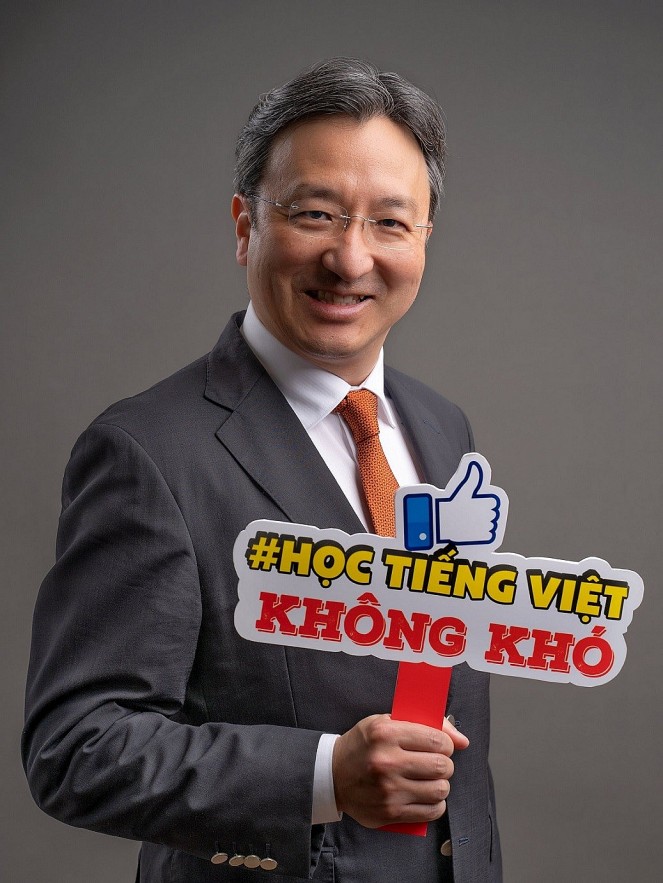 |
| Professor Hiroki Tahara holds a board saying: "Learning Vietnamese is not difficult". |
Upon hearing that I was visiting Sapporo (Japan), my old friend Hiroki Tahara traveled more than two thousand kilometers from Fukuoka to see me. Seeing my gratitude, he smiled and said, "I long to hear Vietnamese. It's been too long since Ta (Professor Hiroki Tahara's affectionate way of referring to himself) returned to Vietnam, so I visited you to ease my homesickness! Ta's friends in Vietnam often ask, ‘When will you return?’ By this, they mean Saigon, not Japan. The word "return" sounds warm and comforting. It’s truly wonderful to have a second homeland and be accepted by it."
Vietnamese fish sauce attracts foreigners
Every time Hiroki Tahara returns to Saigon, he often invites me to Do Do restaurant, owned by writer Nguyen Nhat Anh. Dining there, he looks like an overseas Vietnamese from Quang Nam who lives far from home. He orders all the typical Quang Nam dishes. Tahara loves Vietnamese food, especially the dishes from the Central region.
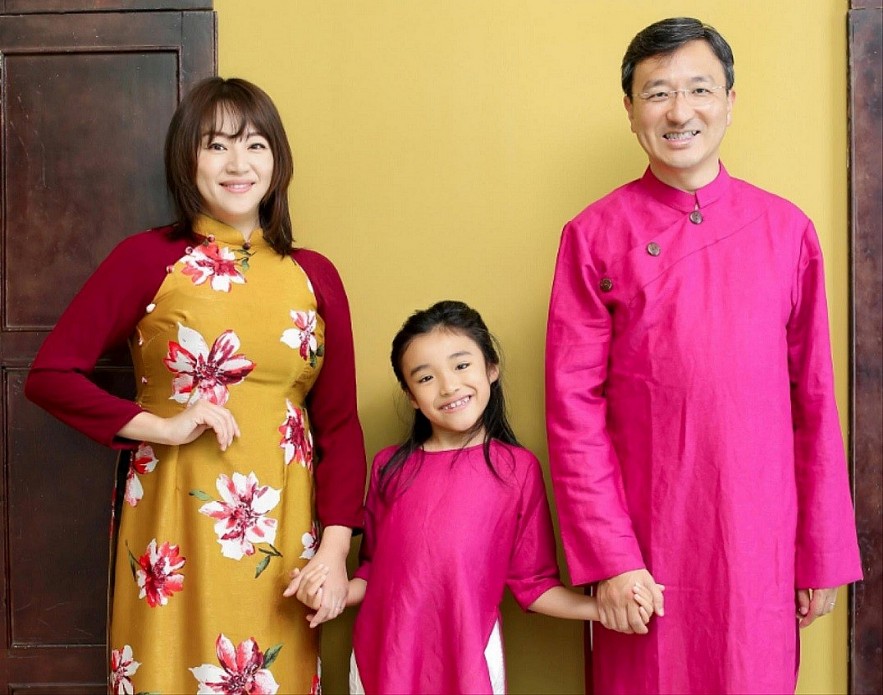 |
| Professor Tahara's family wears Vietnamese Ao Dai during New Year's trip in Japan. |
"When I first came to Vietnam to study, I did not find Vietnamese food to my taste. Used to Koshihikari rice of my homeland - Japan's most famous rice, I find it strange to be exposed to rice from other countries," he said.
Seeing a malnourished Japanese student surviving on bread, the wife of Tahara’s Vietnamese teacher was worried and sympathetic. She would invite him to eat with her family every Sunday afternoon.
"At that time, I was too young to understand the deliciousness of Vietnam. I was also unfamiliar with fish sauce, but now I can eat even shrimp paste and everything!” Tahara recalls.
Tahara still remembers the first time he celebrated Vietnamese Tet. It was in 1993 when his Vietnamese teacher's family invited him over. He recalls the fried wontons and Chinese sausages his teacher made to treat him.
"That year, I thought I would have to celebrate Tet alone, but the teacher's family welcomed me like a family member. This was a source of encouragement for me when I was most discouraged, to the point that if it weren't for the teacher and his wife, I would have dropped out of school a long time ago," he confided.
His attachment to Vietnam grew even stronger. Tahara then got married to a Vietnamese mixed wife, whose mother is Vietnamese.
Tahara got the chance to learn Vietnamese after failing the university entrance exam for the first time. In 1990, Hiroki Tahara took the entrance exam to the Korean language faculty at Tokyo University of Foreign Studies but failed. His family suggested choosing a language that few people knew. Three languages with fewer learners: Thai, Burmese, and Vietnamese. With its Latin alphabet, he thought, "learning Vietnamese would be easy."
Little did he know, Vietnamese would become his lifelong passion. He was one of the first 10 Japanese students to study Vietnamese in Saigon in 1992 at the Center for Vietnamese and Southeast Asian Studies of Ho Chi Minh City University of Science.
The more humorous you are, the easier it is to master Vietnamese
When I met Ta in Japan, the famous singer Vi Thao from Duy Xuyen was also there. Like any Vietnamese person hearing Tahara speak for the first time, Vi Thao was surprised and immediately asked how he became so fluent in Vietnamese.
Tahara humbly said, "Many foreigners are much better at Vietnamese than me. Ta still have limitations. Thanks to many good Vietnamese friends who are willing to sacrifice their time and talk to me, my Vietnamese gradually improved. Especially thanks to humor, I learn Vietnamese quickly."
I remember, during a field trip to Hoi An in the 1990s, someone asked my Japanese friend, "Is your name Toa-hoa-roa?" The man leisurely replied, "No. My name is Tahara." The questioner insisted he was indeed Toa-hoa-roa, but the answerer still insisted that he was Tahara.
Tahara, at that time a linguistics student, was joking to experience firsthand the unique accent of Hoi An (Quang Nam). Tahara admitted that the accent was not easy to translate and pronounce. This also allowed him to practice distinguishing the Quang Nam accent given that foreigners usually only learn the Southern or Northern accent of Vietnamese.
Tahara added, "During my time working at the Japanese Embassy in Hanoi as an interpreter, I often met Vietnamese leaders, many of whom were from the Central region. This helped me listen and understand their words and speech easily. My secret to speaking fluently and writing well in Vietnamese is simply: Don't be afraid of making mistakes, don't be afraid of being criticized. Just speak, just write."
Vietnamese - a gift from fate
Prof. Tahara believes that Vietnamese is a gift from fate. Because "I have my decent life thanks to Vietnamese. I have to repay the Vietnamese people".
In addition to enthusiastically supporting everything related to teaching and learning Vietnamese in Japan for the past decades, Prof. Tahara has published 4 books about Vietnamese. "For Japanese people, the land and people of Vietnam are no longer strange. Vietnam is a favorite tourist destination for Japanese people. Many Vietnamese people are living in Japan, and the number of Vietnamese people traveling to Japan is increasing day by day. However, learning Vietnamese in Japan is still not popular. When traveling to Vietnam, knowing Vietnamese is 10 times more fun, knowing Quang Nam accent is even more fun. As someone who has studied Vietnamese for more than 30 years, Ta wants to contribute something humble to promote the relationship between Japan and Vietnam!" - Prof. Tahara said.
In addition to the “Vietnamese-Japanese Dictionary,” which is currently being revised and supplemented for reprint, Tahara is also nurturing a long-term project called “Vietnamese Bolero Music.” This project has been approved for funding by the Japanese Ministry of Culture, Sports, and Tourism. It stems from Tahara's deep love for Vietnamese music, particularly his fondness for bolero. The opportunity came when he first heard the bolero song "Nang Chieu" (Afternoon Sun) by Quang Nam musician Le Trong Nguyen, which became his favorite Vietnamese song.
| Linguistics professor Hiroki Tahara, born in 1972, studied Vietnamese at Tokyo University of Foreign Studies, Japan and Ho Chi Minh City University of Science. Professor Tahara was an Attaché at the Japanese Embassy in Vietnam from 1996 - 1999. He was in charge of Vietnamese - Japanese interpretation for many high-ranking officials of Vietnam and Japan. He is now a member of the Board of Directors, Ritsumeikan Academy; and a Professor at Ritsumeikan Asia Pacific University, Japan. He has written 4 books on Vietnamese for Japanese: “Introduction to Vietnamese”; “Vietnamese Grammar”; “Vietnamese Communication - Helping You Connect with Vietnamese”; “Vietnamese - Japanese Dictionary” (co-written with Nguyen Van Hue and Tran Thi Minh Gioi). |
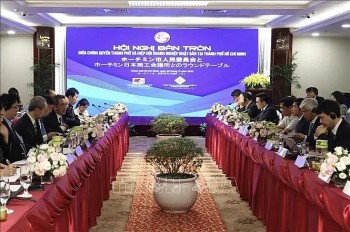 | HCM City Plans to Foster Robust Business Environment with Japanese Companies On December 9, Vice Chairman of the Ho Chi Minh City People's Committee, Vo Van Hoan, affirmed the city's commitment to creating an equal and ... |
 | JETRO: Japanese Enterprises Want to Expend Businesses in Vietnam The results of a survey amomg Japanese businesses investing and doing business in Vietnam show that the percentage of businesses expecting to be profitable in ... |
Recommended
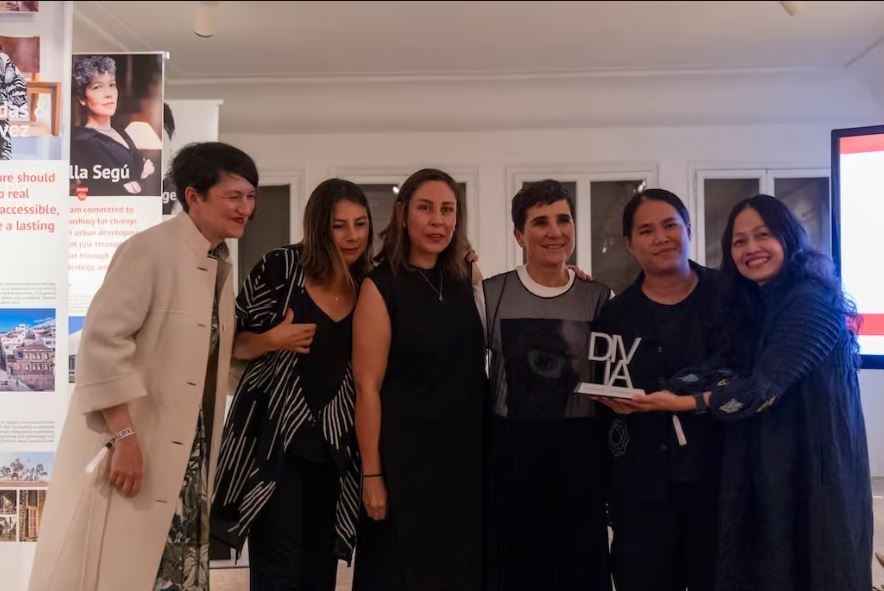 Viet's Home
Viet's Home
Vietnamese Architect Wins the Diversity in Architecture Award 2025
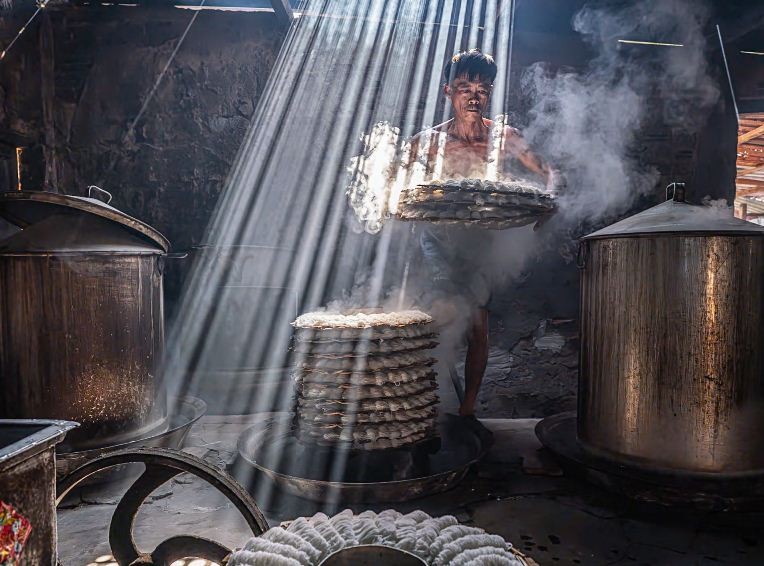 Viet's Home
Viet's Home
Vietnamese Photographer Triumph in Global Food Photography Contest
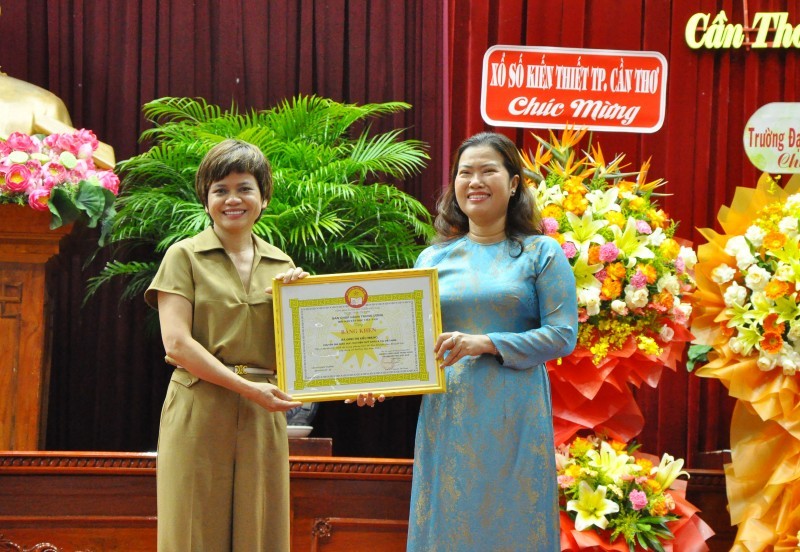 Viet's Home
Viet's Home
The Asia Foundation Awards 101 Scholarships to Can Tho Female Students
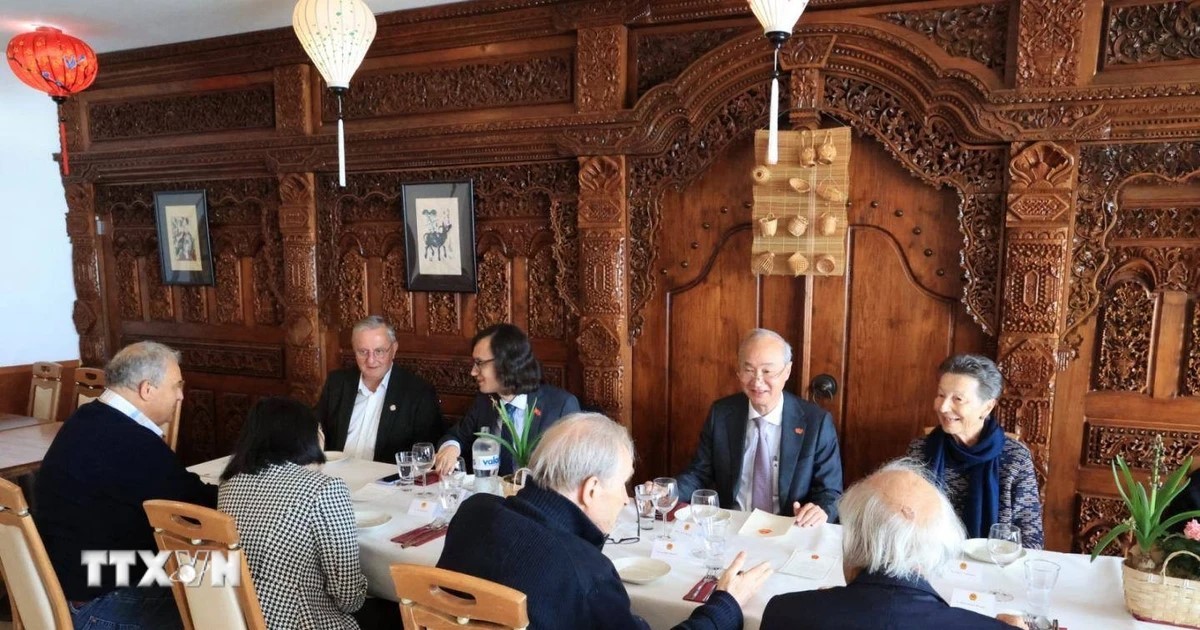 Viet's Home
Viet's Home
Ho Chi Minh And Deep Admiration in the Memories of International friends
Popular article
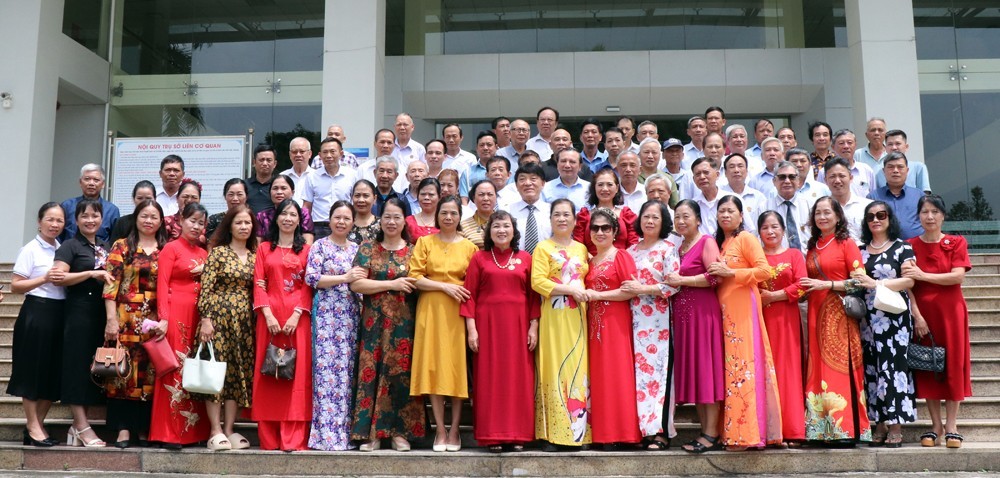 Viet's Home
Viet's Home
Meaningful People-to-people Diplomacy Activities in Bac Giang, Dong Nai, and Ho Chi Minh City
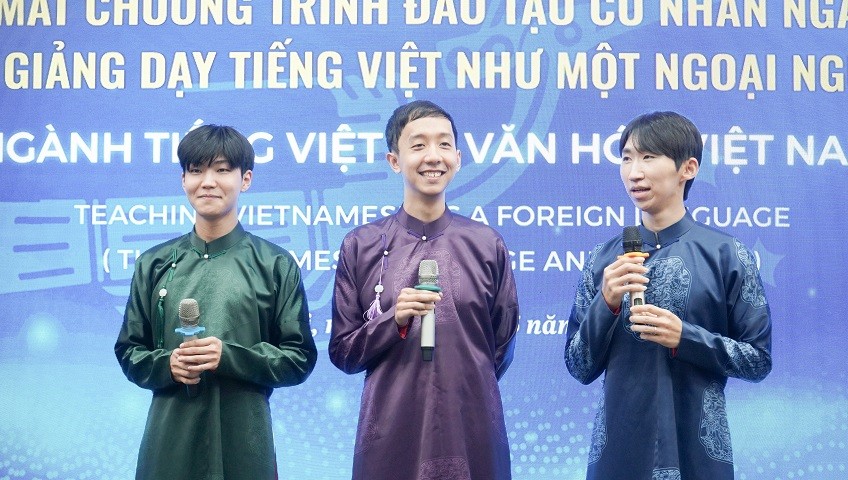 Viet's Home
Viet's Home
Brand New Vietnamese Language Training Program Launches in Hanoi
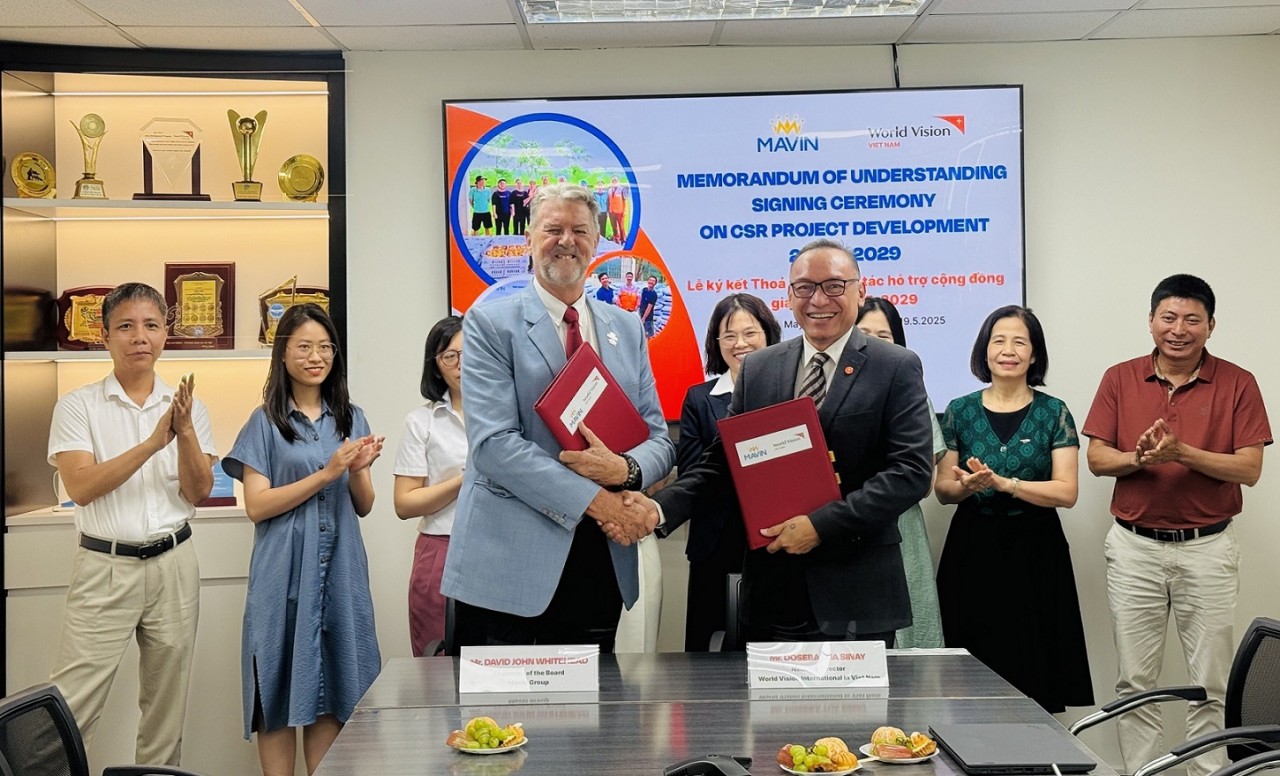 Viet's Home
Viet's Home
WVIV Supports Livelihoods and Improves Nutrition for Poor People in Thanh Hoa
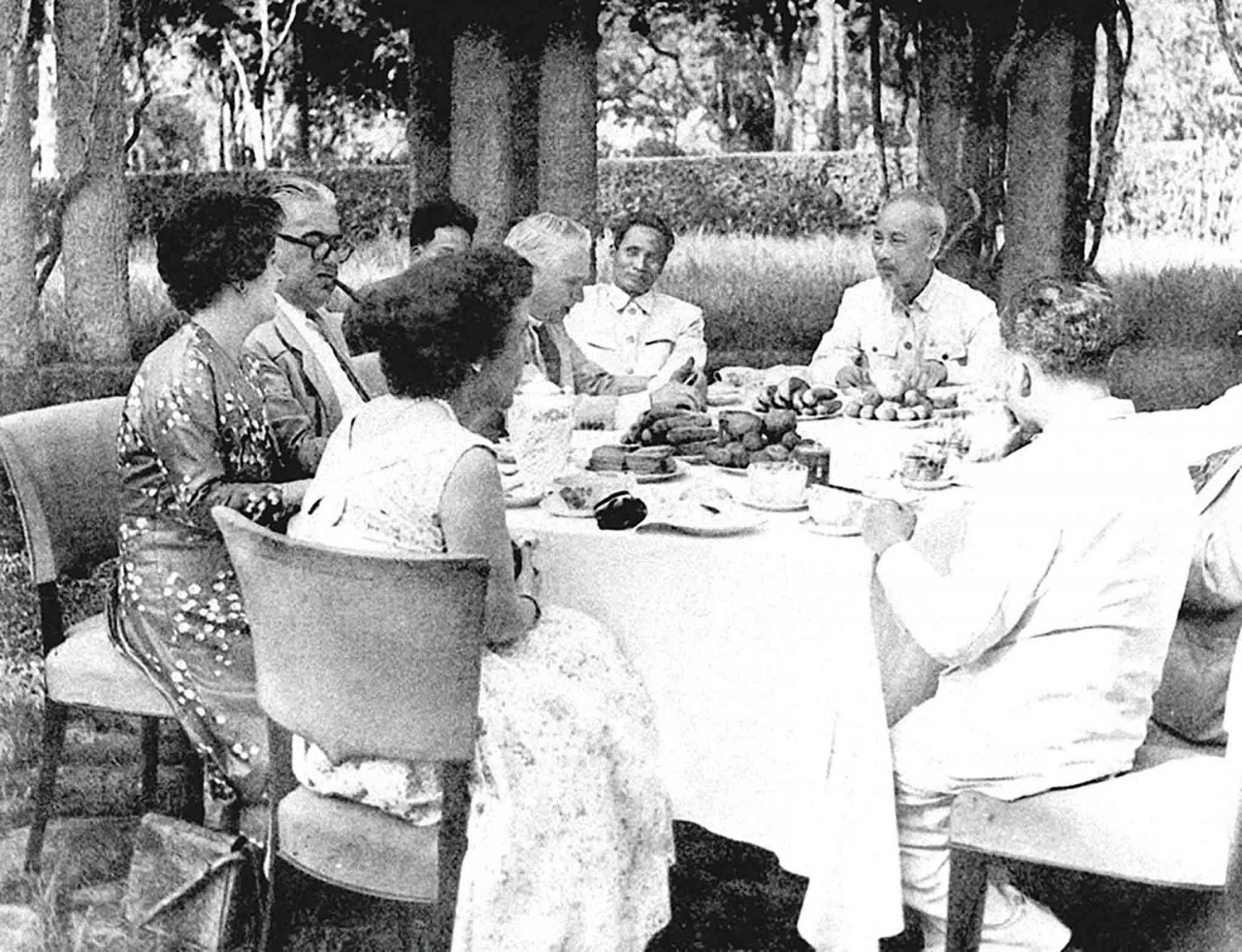 Viet's Home
Viet's Home



